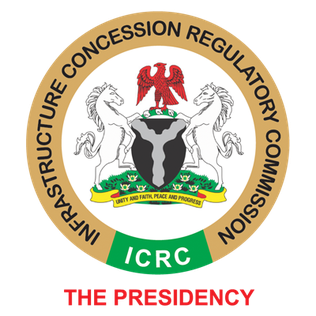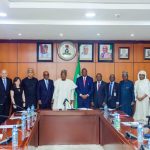Tinubu Launches MediPool to Restore Access to Medicines in Neglected Communities — ICRC
By Patience Ikpeme
The Infrastructure Concession Regulatory Commission (ICRC) has announced a series of critical interventions aimed at addressing deep-seated infrastructure and healthcare delivery challenges in Nigeria, with President Bola Ahmed Tinubu aporoving the MediPool initiative to improve access to essential medicines in underserved regions.
Disclosing this in a statement issued on Sunday in Abuja, the Director General of the ICRC, Dr. Jobson Oseodion Ewalefoh, said the MediPool project is part of the Presidential Initiative for Unlocking the Healthcare Value Chain, a flagship component of the administration’s Renewed Hope Agenda.
“MediPool is restoring hope to neglected regions by ensuring access to essential medicines—a right, not a privilege, for all Nigerians,” Dr. Ewalefoh said.
According to the statement signed by the ICRC’s Acting Head of Media and Publicity, Ifeanyi Nwoko, MediPool aims to transform the national pharmaceutical supply chain by centralizing the procurement and distribution of essential medicines, vaccines, and consumables. The initiative will be implemented through a high-efficiency Group Purchasing Organization (GPO) under a Public-Private Partnership (PPP) framework.
The GPO model, which aggregates demand across public healthcare institutions, is expected to increase transparency, reduce procurement costs, and improve the timely delivery of critical medical supplies. More importantly, the platform will focus on rural and hard-to-reach communities, which have long suffered from irregular supply and inadequate access to life-saving drugs.
The centralized hub will serve as a national clearinghouse to coordinate procurement, quality control, and last-mile distribution, closing systemic gaps that have plagued Nigeria’s health sector for decades.
“This is just the beginning,” Ewalefoh said, adding that Public-Private Partnerships are driving transformative infrastructure delivery across all sectors under Tinubu’s Renewed Hope Agenda. “We are working to ensure that no Nigerian is left behind.”
Beyond healthcare, the ICRC revealed that two major infrastructure projects, long stalled by decades of neglect, have received approval from the Federal Executive Council (FEC) and are set to move forward under PPP arrangements.
One of these is the Ikere Gorge Hydropower Project in Oyo State, first initiated during the military administration of President Olusegun Obasanjo in the late 1970s. Now approved for implementation under a Finance-Build-Operate-Transfer (FBOT) model, the project is expected to generate over 6 megawatts of electricity upon completion.
Beyond power generation, the facility will supply potable water to surrounding communities, including Iseyin and Saki, while also enabling large-scale irrigation to boost agricultural productivity in the region.
“This long-abandoned project is being brought back to life. It will play a key role in increasing access to energy and water for both households and commercial purposes,” the ICRC said.
Also approved is the Coastal Fisheries Terminal in Borokiri, Rivers State. This terminal is designed to revive Nigeria’s marine value chain through modern cold-chain logistics that will drastically reduce post-harvest losses.
Under the PPP arrangement, the terminal will be equipped to support processing, storage, and export of marine products, thereby creating jobs, boosting local economic activity, and enhancing Nigeria’s competitiveness in global seafood markets.
The ICRC noted that both projects demonstrate a new direction in Nigeria’s development strategy—one that leverages private sector capital and expertise to address long-standing infrastructure challenges.
“These projects mark a new chapter in Nigeria’s development story. They reflect a commitment to leveraging private sector expertise and financing to drive public infrastructure and improve services nationwide,” Ewalefoh said.
As Nigeria’s PPP regulator, the ICRC reaffirmed its responsibility to ensure that all such projects meet rigorous standards of transparency, accountability, and performance. The Commission will continue to provide oversight across the project lifecycle—from planning and procurement through implementation and monitoring.
“Our role is to ensure that these partnerships deliver real value to Nigerians. That means overseeing contract terms, managing risks, and tracking project milestones to ensure that the public reaps the promised benefits,” the Commission stated.
The Commission added that all PPP projects must align with international best practices and Nigeria’s national development goals.
“The success of these initiatives will depend not only on vision but on rigorous implementation, and the ICRC stands ready to guide these projects every step of the way,” the statement concluded.




